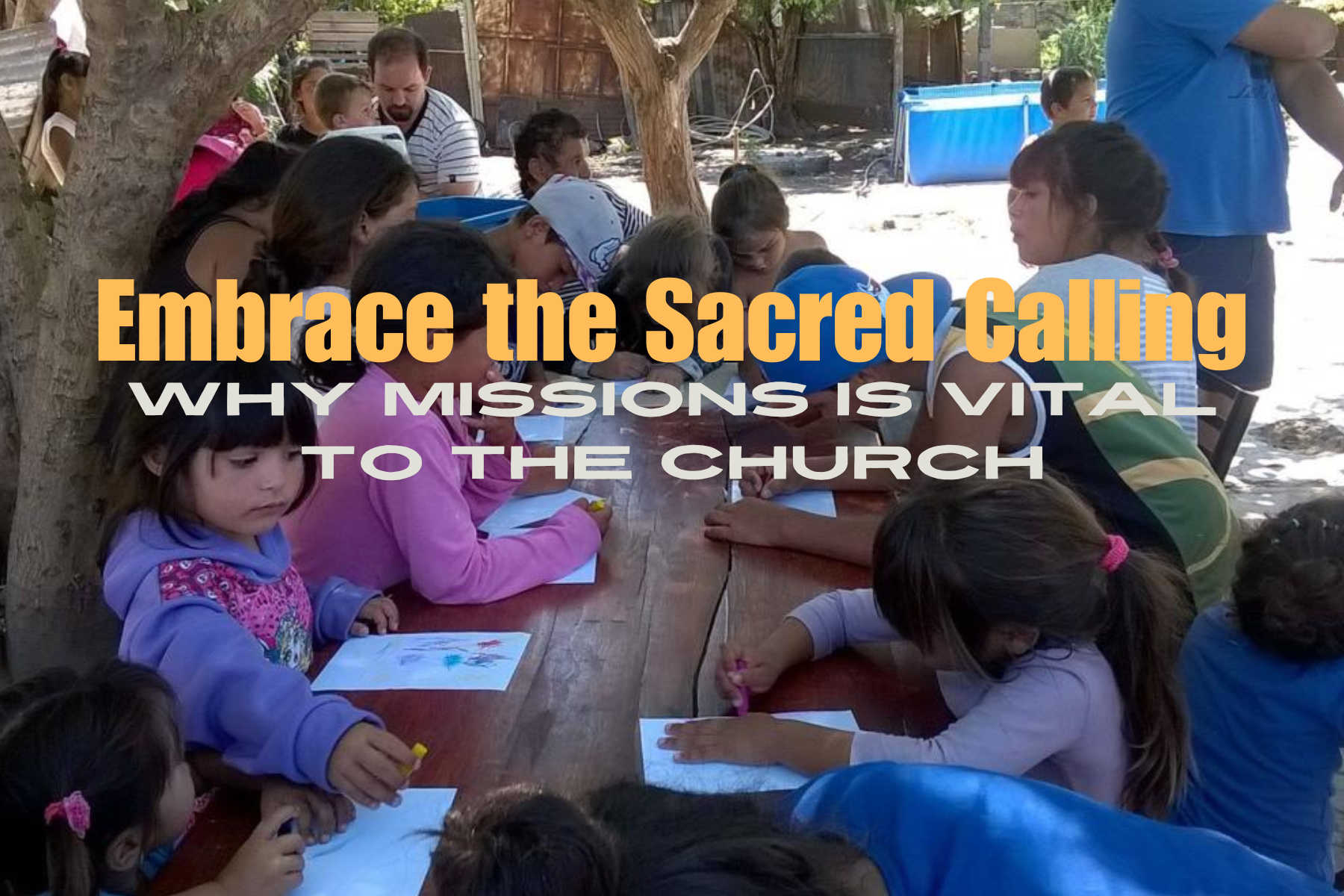In the grand narrative of the Bible, from the dawn of creation to the culmination of history, the theme of God’s kingdom resounds with resolute clarity. Embedded within this overarching narrative is the sacred calling of the Church – the community of the King – to participate in the divine mission of advancing God’s kingdom on earth. At the heart of this mission lies the imperative of proclamation, embodiment, and demonstration of the sovereign kingship of Jesus Christ. In this exploration, we unveil the profound importance of missions to the Church, rooted in the timeless truths revealed from the book of Acts to the culmination of Revelation.
Understanding the Kingdom Mandate
From the inception of creation, God’s intention has always been to extend His kingdom from heaven to earth, mirroring the peaceful perfection of the Garden of Eden described in Genesis. This divine mandate finds its fulfillment in the redemptive work of Jesus Christ, who inaugurated the kingdom through His life, death, resurrection, and accession. The Gospels vividly depict Jesus proclaiming the arrival of the kingdom and demonstrating its transformative power through acts of compassion, healing, and deliverance. In Matthew 4:17, Jesus declares, “Repent, for the kingdom of heaven has come near.” Furthermore, in Luke 4:18-19, Jesus quotes Isaiah 61, revealing His mission to proclaim good news to the poor, freedom for the prisoners, recovery of sight for the blind, and to set the oppressed free.
As recipients of this grace, the Church is entrusted with the sacred task of heralding the Gospel of the kingdom to the ends of the earth. The book of Acts chronicles the early believers’ fervent proclamation of the Gospel, resulting in the expansion of the kingdom amidst opposition and persecution. Acts 1:8 records Jesus’ commission to His disciples, “But you will receive power when the Holy Spirit comes on you; and you will be my witnesses in Jerusalem, and in all Judea and Samaria, and to the ends of the earth.” This narrative serves as a timeless reminder of the Church’s calling to be ambassadors of Christ, bearing witness to the reality of His reign amid a broken and fragmented world.
Moreover, the early Church in Acts demonstrated the kingdom’s transformative power by serving one another with selflessness and generosity. Acts 2:44-45 depict the believers sharing everything they had, selling their possessions, and giving to anyone in need. This radical communal living showcased to the world a different way of living, guided by the principles of God’s kingdom.
Proclamation, Embodiment, and Demonstration
Central to the mission of the Church is the threefold mandate of proclamation, embodiment, and demonstration of the kingdom of God. The Gospels depict Jesus as the embodiment of the kingdom, where He walked, the kingdom manifested itself through acts of love, mercy, and justice. In Matthew 9:35, it is written, “Jesus went through all the towns and villages, teaching in their synagogues, proclaiming the good news of the kingdom and healing every disease and sickness.” Similarly, the Church, as the body of Christ, is called to embody the values of the kingdom – caring for the marginalized, advocating for the oppressed, and extending grace to the brokenhearted.
Moreover, the kingdom of God is demonstrated through the tangible expressions of God’s love and power in the world. This includes feeding the hungry, clothing the naked, healing the sick, and delivering those oppressed by the forces of darkness. In Matthew 25:35-36, Jesus instructs His followers, “For I was hungry and you gave me something to eat, I was thirsty and you gave me something to drink, I was a stranger and you invited me in, I needed clothes and you clothed me, I was sick and you looked after me, I was in prison and you came to visit me.”
Co-Laborers with God
While the advancement of God’s kingdom ultimately rests in His sovereign hands, He invites the Church to co-labor with Him in this divine endeavor. The New Testament never instructs believers to “build” the kingdom but rather to participate in its unfolding through obedience and faithfulness. In 1 Corinthians 3:9, Paul writes, “For we are co-workers in God’s service; you are God’s field, God’s building.” This entails a radical reorientation of our priorities, where we align ourselves with God’s purposes and seek first His kingdom and righteousness.
In conclusion, missions is not merely an optional activity of the Church but the very essence of its existence. Rooted in the timeless truths of Scripture, the Church is called to embrace its sacred calling as co-laborers with God in advancing His kingdom on earth. As we proclaim, embody, and demonstrate the reality of God’s reign, may our lives bear witness to the transformative power of the Gospel, inviting others to experience the abundant life found in Jesus Christ. Let us, therefore, rise to the challenge, knowing that the kingdom of God is not a distant future reality but a present reality to be embraced and proclaimed with boldness and conviction.

